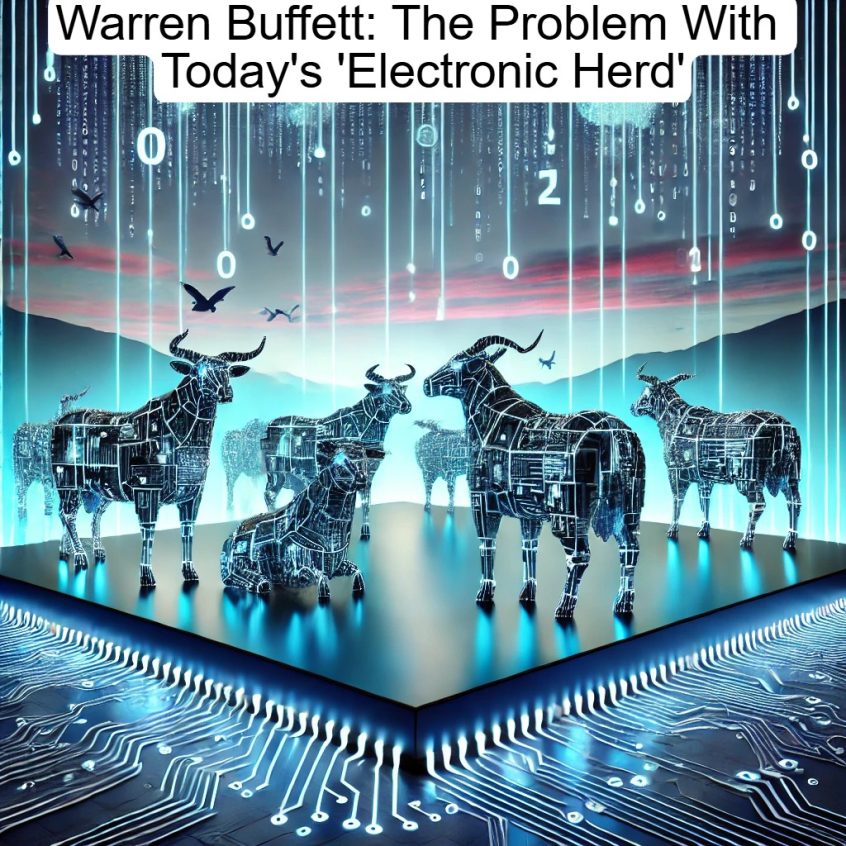The stock market today feels like it’s running on caffeine – jittery, reactive, and prone to wild mood swings. Warren Buffett saw this coming way back in 2007 during the Berkshire Hathaway annual meeting when he described what’s fundamentally changed in markets.
“There is an electronic herd of people around the world managing huge amounts of money who think that a decision on everything in their portfolio should be made basically daily or hourly,” he observed. That single sentence explains so much about why modern investing feels so different from the markets of decades past.
Buffett pointed out a crucial shift in market behavior that many of us feel but might struggle to articulate. “People used to buy bonds to own them… now they buy bonds to trade them,” he noted.
This isn’t just about bonds – it’s true for stocks too. The entire philosophy of investing has transformed from long-term ownership to short-term trading.
What was once a patient exercise in business analysis has become a rapid-fire game of reaction and speculation. The numbers bear this out dramatically. As Buffett shared, “Turnover on the New York Stock Exchange… was down around the 15 or 20 percent range 40 years ago and it’s increased to a hundred percent I believe plus now.”
That’s an astonishing change in how market participants behave.
This hyperactive trading creates a market environment where prices swing wildly based on momentary news rather than business fundamentals. “If you’re trying to beat the other fellow on a day-to-day basis, you are watching news events very carefully… if you think he’s about to hit that key, you’re going to try and hit the key faster,” Buffett explained.
This describes perfectly why markets now react so violently to Fed statements, economic reports, or even tweets. It’s not that the underlying value of businesses changes that quickly – it’s that the dominant players in markets are engaged in this high-speed game of reactionary trading.
The consequences of this shift are significant. When money managers “are getting measured on results weekly,” as Buffett noted, they can’t possibly focus on long-term value creation. The pressure to perform in the short term forces behavior that might not align with prudent investing.
This helps explain why we see such dramatic market moves that often seem disconnected from economic reality. Buffett was careful to note that “there’s nothing evil about that” – traders have every right to play this game. But it’s crucial for investors to understand that this is a fundamentally different market environment than what existed in previous generations.
What does this mean for regular investors? First, it explains why market volatility has increased and why sudden crashes or irrational rallies have become more common. Second, it highlights the importance of understanding what game you’re really playing when you enter the markets.
The electronic herd Buffett described will continue to dominate short-term price movements, but that doesn’t mean long-term investors need to play by those rules. In fact, this environment might create more opportunities for those willing to ignore the noise and focus on real business value. The market’s increased hyperactivity means there are likely more instances of mispriced assets – both overpriced and underpriced – than in calmer times.
You can watch the entire meeting here:
For all the latest news and podcasts, join our free newsletter here.
Don’t forget to check out our FREE Large Cap 1000 – Stock Screener, here at The Acquirer’s Multiple:



